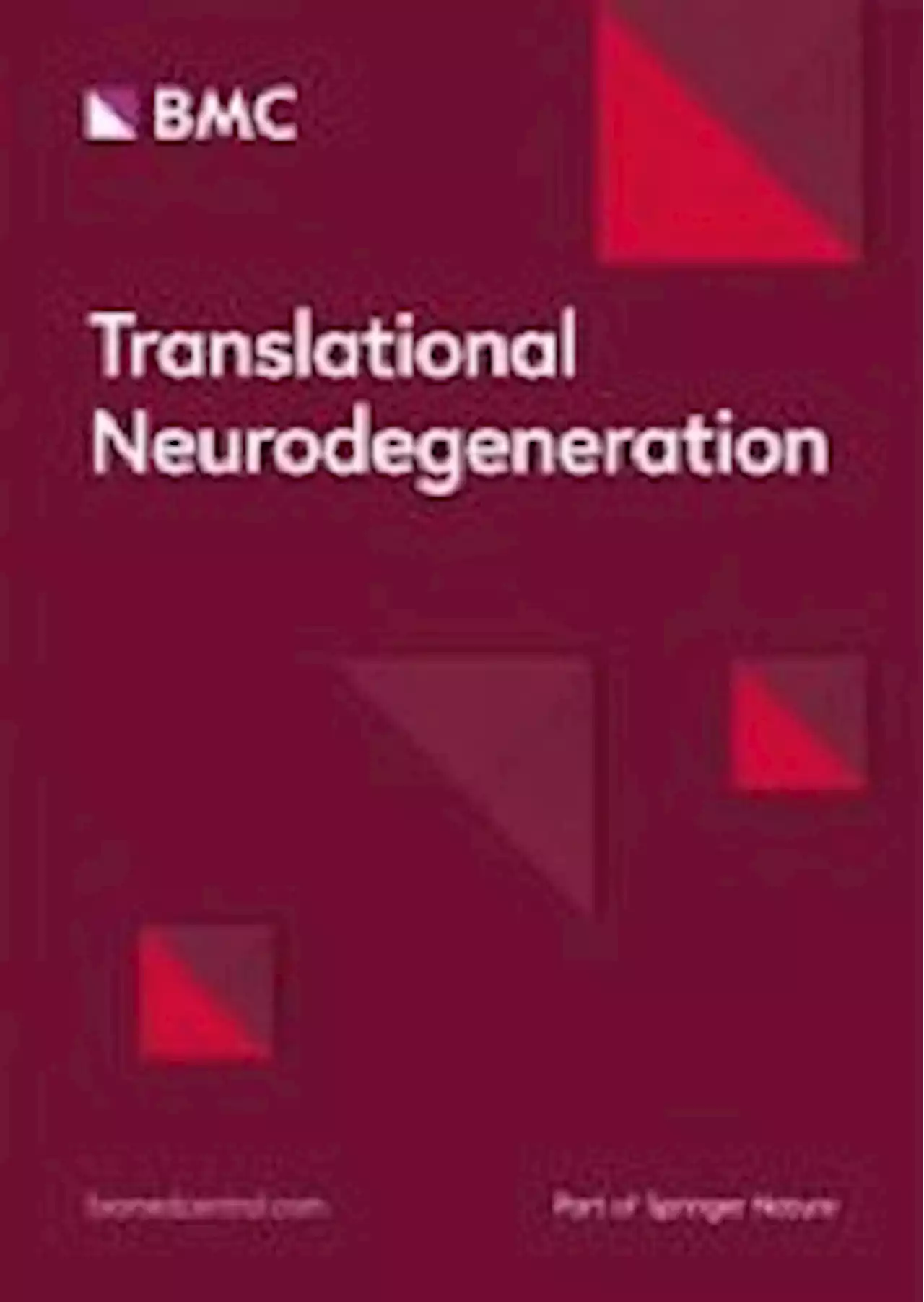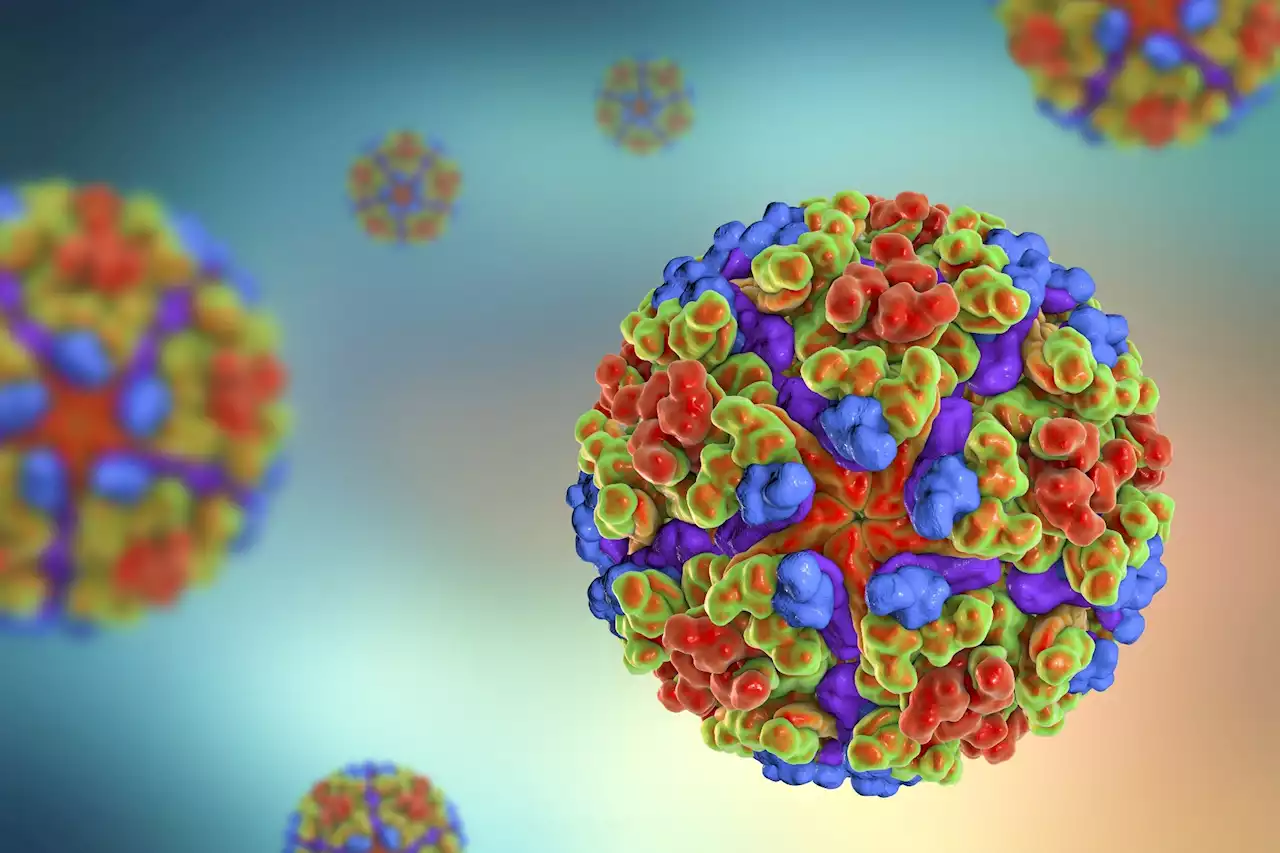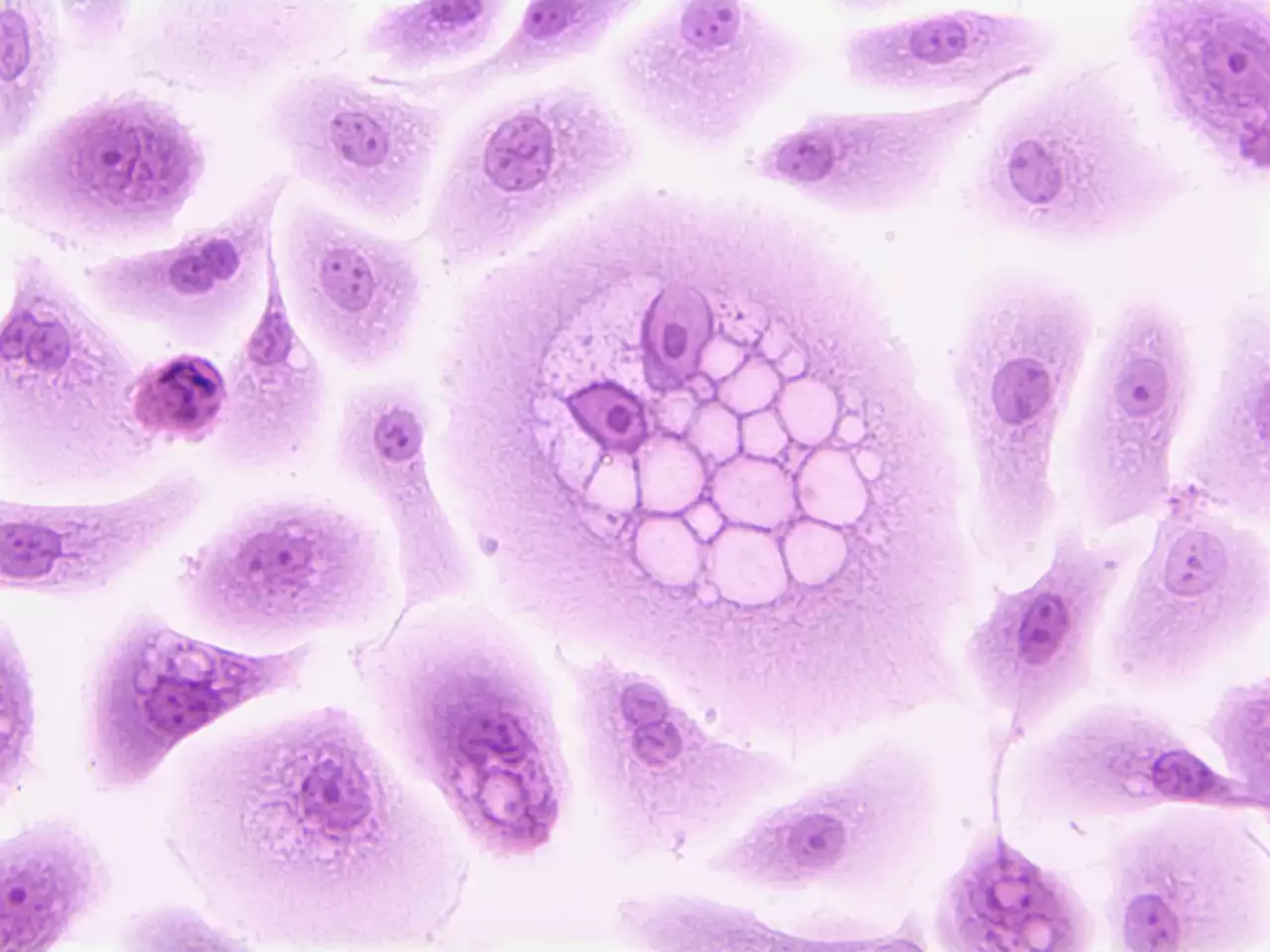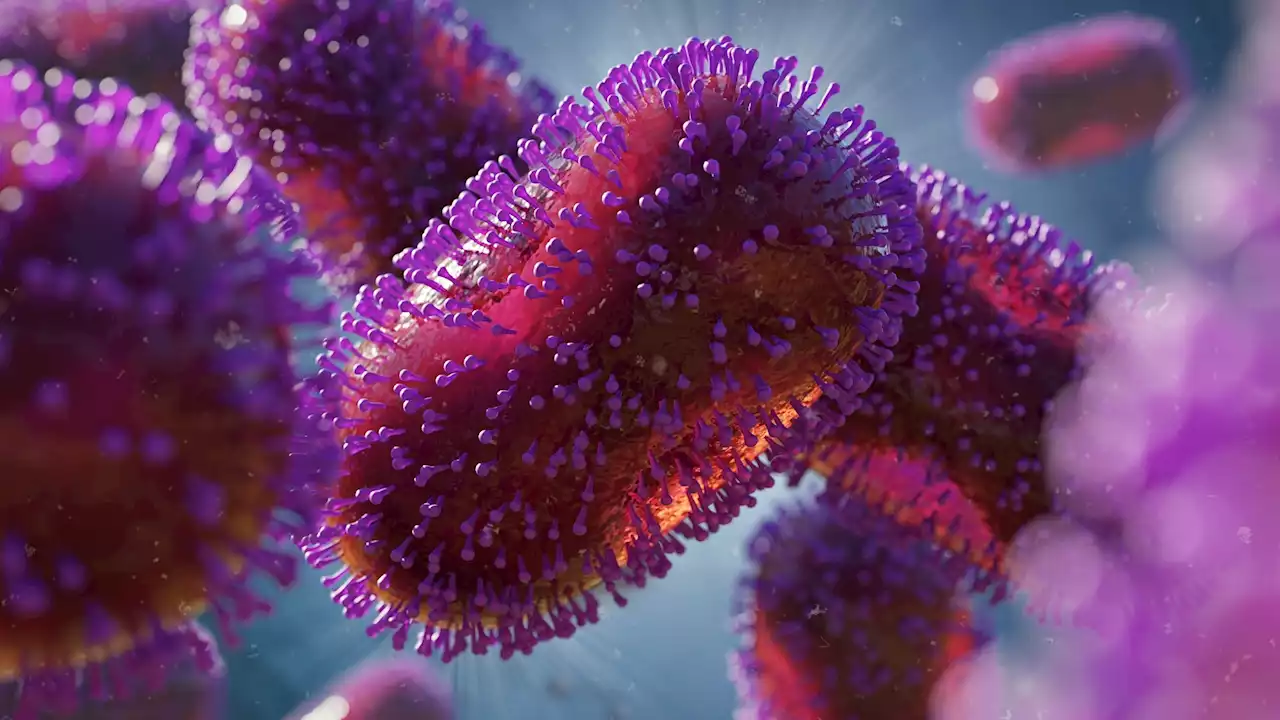Study shows no undetected monkeypox virus transmission before May 2022 in Rotterdam and Amsterdam medrxivpreprint ErasmusMC Monkeypox MonkeypoxInfection Amsterdam Rotterdam Transmission Virus
By Pooja Toshniwal PahariaNov 23 2022Reviewed by Aimee Molineux In a recent study posted to the medRxiv* preprint server, researchers investigated whether undetected human monkeypox virus transmission occurred before the first documented MPX case in Rotterdam and Amsterdam.
In total, 401 anorectal specimens and ulcer specimens obtained from males who have sex with male individuals visiting the Centers for Sexual Health of Rotterdam and Amsterdam dated back to February 14 were analyzed. The CSH regularly obtains the anorectal specimens for Ct and Ng testing. In contrast, ulcer specimens are obtained for VZV , Tp , and HSV -1, -2 testing. All specimens were preserved for four months.
Results Related StoriesIn Amsterdam, 169 Ng/Ct-positive anorectal specimens and 125 ulcer specimens were tested for hMPXV presence. None of the specimens were hMPXV-positive. In Rotterdam, 93 Ct/Ng-positive anorectal specimens were tested, of which 30 visitors reported complaints between 1 April and 18 May 18. In addition, during the period, 12 ulcer specimens were tested for hMPXV presence.
Sequences of the hMPXV-positive Amsterdam MSM individual were identified to be IIb clade sequences and were closely related to global hMPXV strains. The hMPXV-positive Rotterdam resident sequences could not be analyzed due to insufficient deoxyribonucleic acid . The two hMPXV-positive cases were identified in a period coinciding with that of initial MPX case documentation in Spain , Portugal , and the United Kingdom .
Danmark Seneste Nyt, Danmark Overskrifter
Similar News:Du kan også læse nyheder, der ligner denne, som vi har indsamlet fra andre nyhedskilder.
 Gut microbiome, cognitive function and brain structure: a multi-omics integration analysis - Translational NeurodegenerationBackground Microbiome-gut-brain axis may be involved in the progression of age-related cognitive impairment and relevant brain structure changes, but evidence from large human cohorts is lacking. This study was aimed to investigate the associations of gut microbiome with cognitive impairment and brain structure based on multi-omics from three independent populations. Methods We included 1430 participants from the Guangzhou Nutrition and Health Study (GNHS) with both gut microbiome and cognitive assessment data available as a discovery cohort, of whom 272 individuals provided fecal samples twice before cognitive assessment. We selected 208 individuals with baseline microbiome data for brain magnetic resonance imaging during the follow-up visit. Fecal 16S rRNA and shotgun metagenomic sequencing, targeted serum metabolomics, and cytokine measurements were performed in the GNHS. The validation analyses were conducted in an Alzheimer’s disease case–control study (replication study 1, n = 90) and another community-based cohort (replication study 2, n = 1300) with cross-sectional dataset. Results We found protective associations of specific gut microbial genera (Odoribacter, Butyricimonas, and Bacteroides) with cognitive impairment in both the discovery cohort and the replication study 1. Result of Bacteroides was further validated in the replication study 2. Odoribacter was positively associated with hippocampal volume (β, 0.16; 95% CI 0.06–0.26, P = 0.002), which might be mediated by acetic acids. Increased intra-individual alterations in gut microbial composition were found in participants with cognitive impairment. We also identified several serum metabolites and inflammation-associated metagenomic species and pathways linked to impaired cognition. Conclusions Our findings reveal that specific gut microbial features are closely associated with cognitive impairment and decreased hippocampal volume, which may play an important role in dementia development.
Gut microbiome, cognitive function and brain structure: a multi-omics integration analysis - Translational NeurodegenerationBackground Microbiome-gut-brain axis may be involved in the progression of age-related cognitive impairment and relevant brain structure changes, but evidence from large human cohorts is lacking. This study was aimed to investigate the associations of gut microbiome with cognitive impairment and brain structure based on multi-omics from three independent populations. Methods We included 1430 participants from the Guangzhou Nutrition and Health Study (GNHS) with both gut microbiome and cognitive assessment data available as a discovery cohort, of whom 272 individuals provided fecal samples twice before cognitive assessment. We selected 208 individuals with baseline microbiome data for brain magnetic resonance imaging during the follow-up visit. Fecal 16S rRNA and shotgun metagenomic sequencing, targeted serum metabolomics, and cytokine measurements were performed in the GNHS. The validation analyses were conducted in an Alzheimer’s disease case–control study (replication study 1, n = 90) and another community-based cohort (replication study 2, n = 1300) with cross-sectional dataset. Results We found protective associations of specific gut microbial genera (Odoribacter, Butyricimonas, and Bacteroides) with cognitive impairment in both the discovery cohort and the replication study 1. Result of Bacteroides was further validated in the replication study 2. Odoribacter was positively associated with hippocampal volume (β, 0.16; 95% CI 0.06–0.26, P = 0.002), which might be mediated by acetic acids. Increased intra-individual alterations in gut microbial composition were found in participants with cognitive impairment. We also identified several serum metabolites and inflammation-associated metagenomic species and pathways linked to impaired cognition. Conclusions Our findings reveal that specific gut microbial features are closely associated with cognitive impairment and decreased hippocampal volume, which may play an important role in dementia development.
Læs mere »
 Study shows sylvatic origin of chikungunya virus transmission among nonhuman primates of MyanmarResearchers investigated the potential exposure of peri-urban non-human primates (NHPs) residing near Yangon to arboviruses that have raised health concerns.
Study shows sylvatic origin of chikungunya virus transmission among nonhuman primates of MyanmarResearchers investigated the potential exposure of peri-urban non-human primates (NHPs) residing near Yangon to arboviruses that have raised health concerns.
Læs mere »
 The amount of food you should really eat at Christmas as new study causes upsetParents across the UK have been left shocked at new research that has revealed the apparent recommended portion sizes children should be eating this festive season.
The amount of food you should really eat at Christmas as new study causes upsetParents across the UK have been left shocked at new research that has revealed the apparent recommended portion sizes children should be eating this festive season.
Læs mere »
 New study brings personalized immunotherapy prescriptions a step closerIn a step likely to advance personalized cancer treatment, scientists have—for the first time—shown in patients that levels of biomarkers are not enough to tell which patients are likely to respond best to immunotherapy.
New study brings personalized immunotherapy prescriptions a step closerIn a step likely to advance personalized cancer treatment, scientists have—for the first time—shown in patients that levels of biomarkers are not enough to tell which patients are likely to respond best to immunotherapy.
Læs mere »
 Study: Antioxidant flavonols linked to slower memory declinePeople who eat or drink more foods with antioxidant flavonols, which are found in several fruits and vegetables as well as tea and wine, may have a slower rate of memory decline, according to a study published in Neurology.
Study: Antioxidant flavonols linked to slower memory declinePeople who eat or drink more foods with antioxidant flavonols, which are found in several fruits and vegetables as well as tea and wine, may have a slower rate of memory decline, according to a study published in Neurology.
Læs mere »
